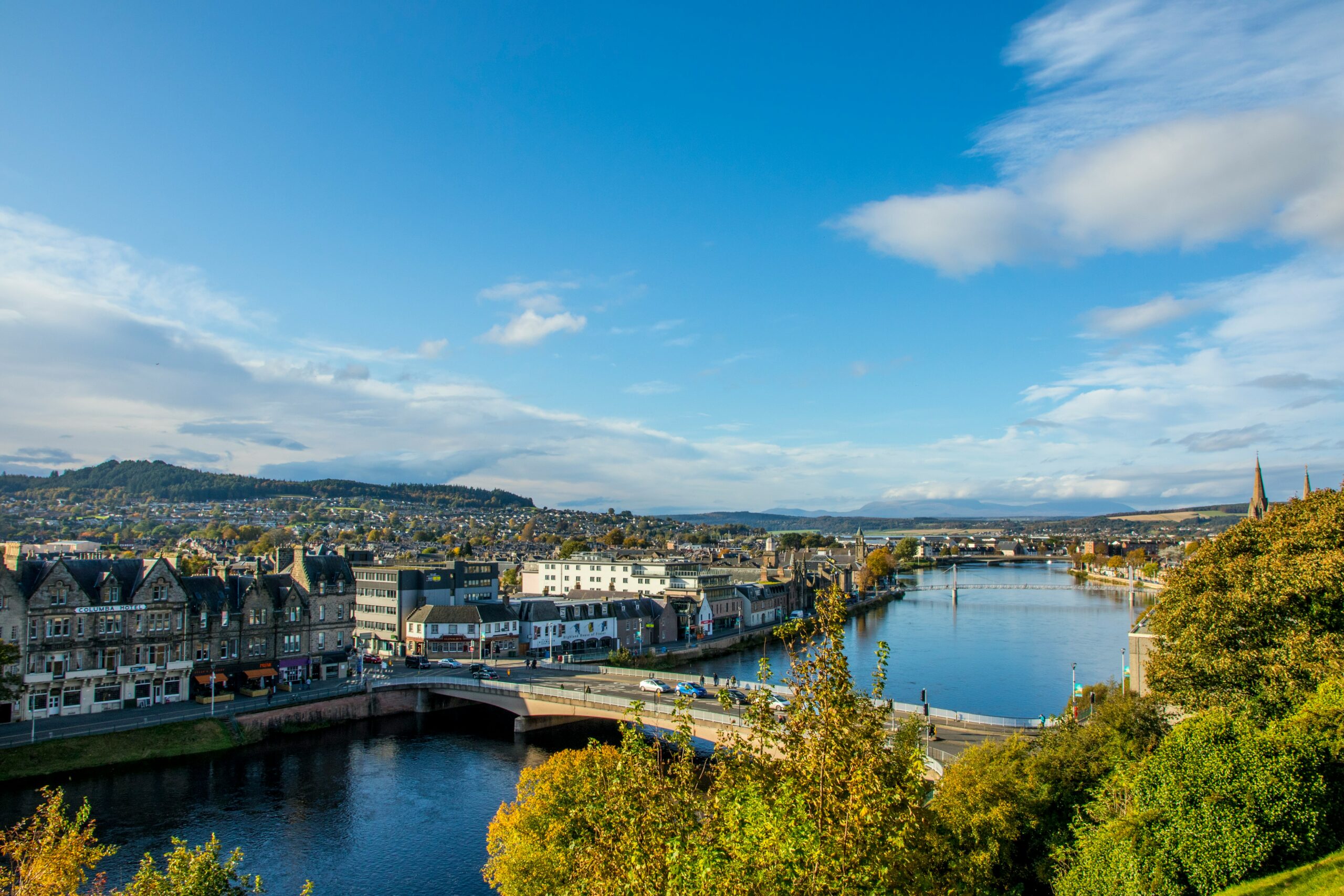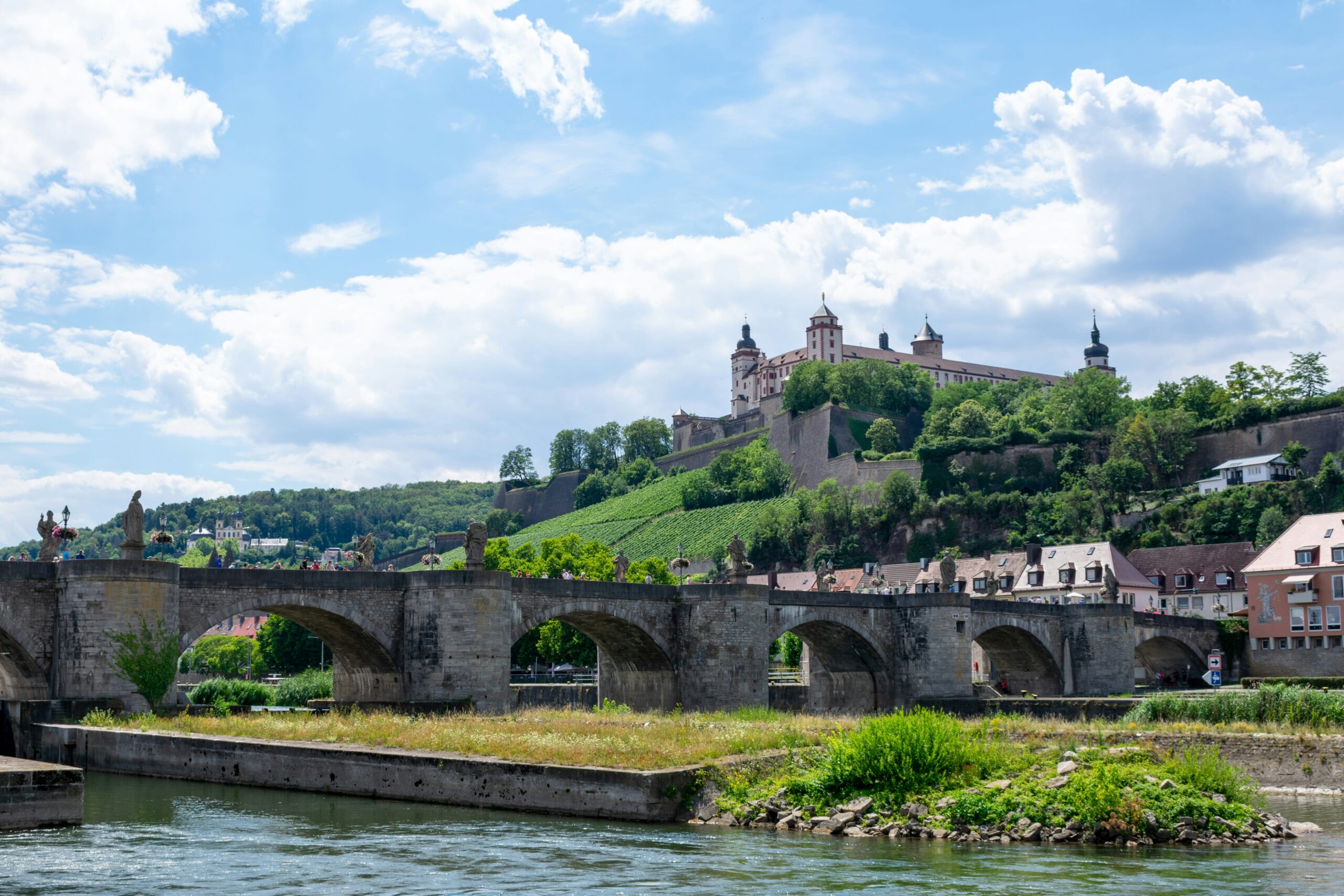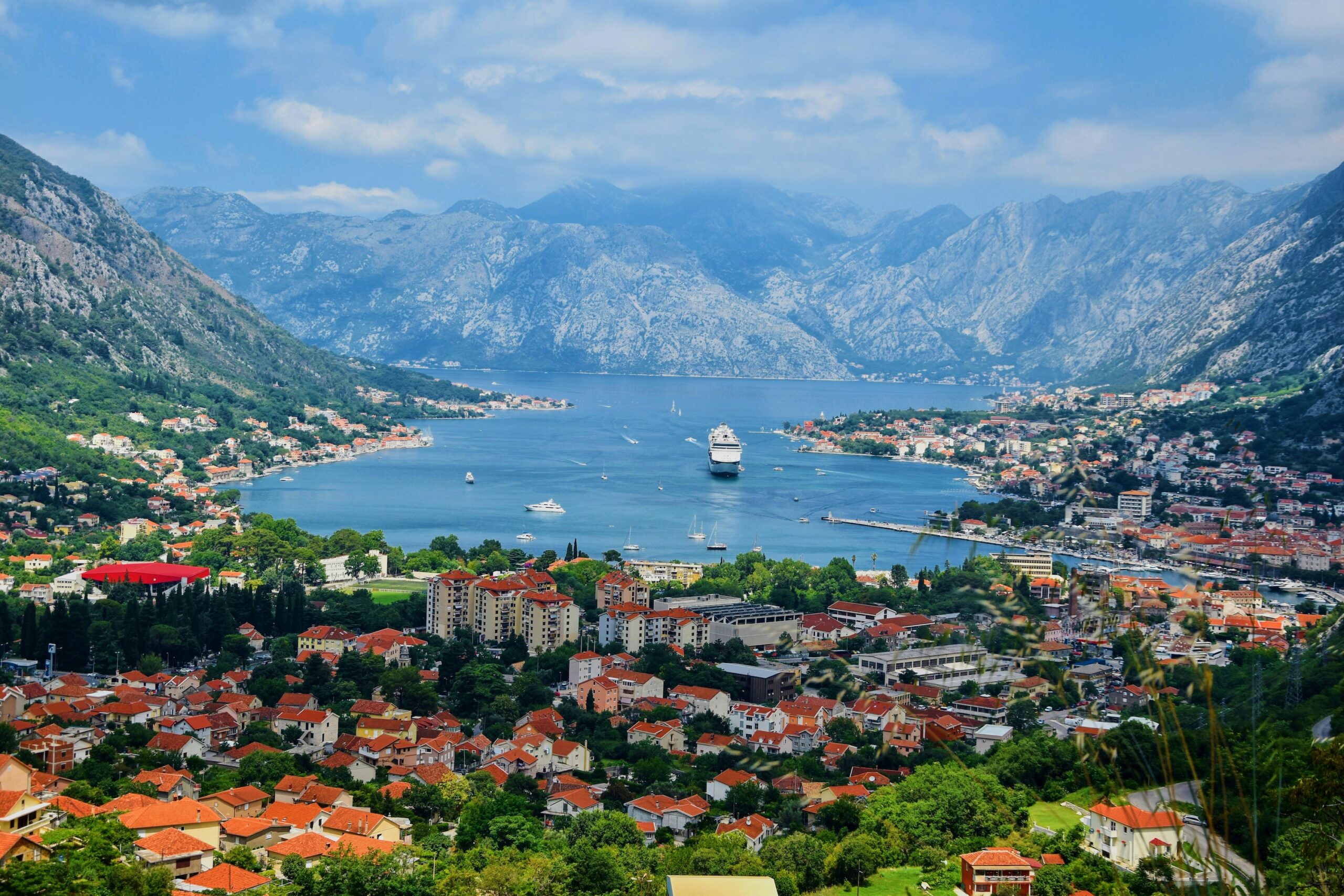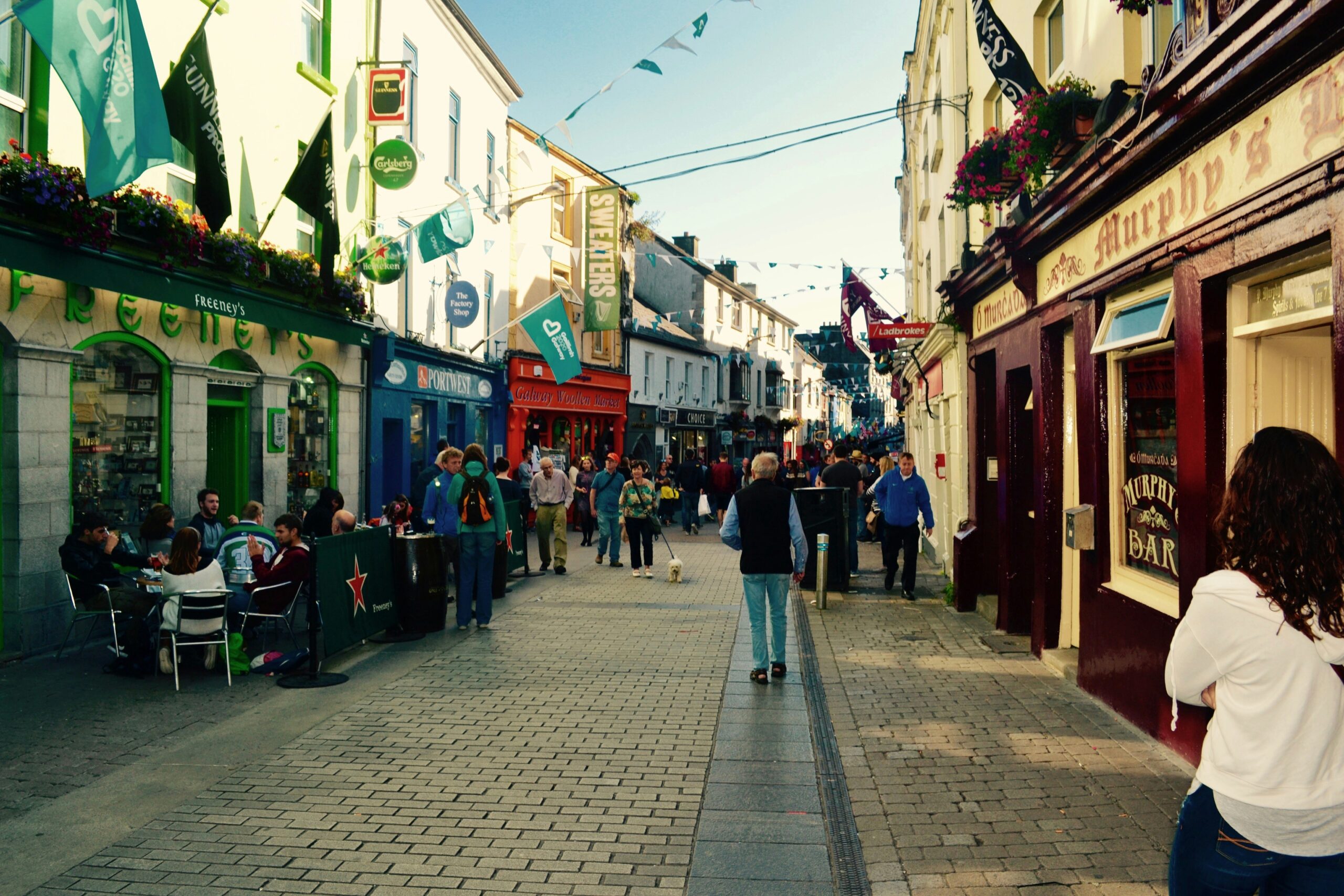[ad_1]
As somebody who has spent over a decade exploring Europe by automotive, van, and generally even by motorcycle, I’ve come to consider that one of the best ways to grasp a spot is by driving by way of it. Street journeys aren’t nearly masking floor; they’re about getting misplaced in hidden valleys, stumbling upon native meals markets, and experiencing spontaneous moments you may’t plan in an itinerary.
Through the years, I’ve pushed by way of the Alps in a snowstorm, crossed the sunny vineyards of Provence within the fall, navigated slender coastal roads in Montenegro, and even camped underneath the celebrities in northern Scotland. Each journey taught me one thing new. These journeys aren’t nearly journey but in addition preparation, flexibility, and understanding the rhythm of the highway.
Why You Ought to Belief This Street Journey Information
This information is just not one other generic listing of locations. It’s a curated, private roadmap primarily based on firsthand experiences, backed by information, logistics, and classes realized the onerous method. Whether or not you’re planning a once-in-a-lifetime journey or your tenth European journey, what you’ll discover right here is constructed on each experience and real-world exploration.
Years of Driving Expertise Throughout Europe
I’ve personally pushed in additional than 20 European international locations, from the organized autobahns of Germany to the winding cliff roads of the Amalfi Coast. Every area has its personal driving tradition, highway guidelines, and hidden challenges — but in addition its personal breathtaking rewards. My background in journey writing, logistics planning, and itinerary constructing provides me a singular perspective that blends ardour with precision.
How I Designed These Itineraries: What I Worth Most in a Street Journey
The routes I embody right here have been chosen primarily based on 5 key elements:
Scenic high quality: Landscapes that make you need to pull over each 5 minutes
Cultural worth: Cities, traditions, and moments that really feel uniquely native.
Range: Not simply highways, however coastlines, mountains, vineyards, and villages
Accessibility: Lifelike for each novice and seasoned drivers
Private affect: Locations that made me pause, replicate, or smile uncontrollably
Security, Budgeting and Cultural Immersion
I don’t simply listing routes; I enable you navigate them safely and meaningfully. Meaning actual budgeting estimates, breakdown of authorized necessities, seasonal driving suggestions, and even options for the very best roadside café to seize a neighborhood pastry.
The perfect highway journey in Europe is the one that matches you, and this information is designed that can assist you plan with confidence, journey with pleasure, and keep in mind it ceaselessly.
What Makes the Greatest Street Journey in Europe?
In the event you ask 10 totally different vacationers what defines the very best highway journey in Europe, you’ll get 10 totally different solutions, and all of them could be proper. The great thing about driving throughout Europe lies in its variety: you may cross borders in minutes; shift from mountain to coast in an hour; and expertise a dozen languages, cuisines, and landscapes in a single journey.
However in my expertise, what elevates a highway journey from “good” to “unforgettable” comes down to a couple key elements:
Key Components: Surroundings, Accessibility, and Flexibility
Europe presents among the most scenic routes on the planet, from Italy’s cliff-hugging Amalfi Coast to the limitless fjords of Norway. However scenic magnificence alone isn’t sufficient. A very nice highway journey ought to really feel fluid, not hectic.
That’s why accessibility issues: easy roads, out there gas stops, clear signage, and reasonable every day driving distances. It’s about designing an itinerary that offers you time to breathe and discover, not one which looks like a race in opposition to time.
Maybe most significantly, an excellent highway journey provides you choices. Wish to keep an additional day in that quiet alpine village? You must be capable of. Flexibility is freedom, and that’s what highway journeys are all about.
Cultural Range and Native Immersion
Not like flights or high-speed trains, driving allows you to expertise Europe’s texture. You’ll cross by way of tiny wine-producing villages in Portugal, roadside farmers’ markets in Slovenia, and historical hilltop cities in Spain that the majority vacationers by no means see.
What I all the time search for in a route is how a lot “native Europe” it presents: not simply the monuments and the large cities, however the soul of a spot. The perfect highway journeys lead you to individuals and locations that aren’t attempting to impress you; they’re simply being themselves.
Street Situations and Driving Legal guidelines You Should Know
One of the vital missed elements when planning a European highway journey is the variation in highway guidelines. From emission zone stickers in Germany, to obligatory snow tires in Austria, to toll tag techniques in France and Portugal—every nation has its quirks.
Driving in Iceland, as an example, presents a wholly totally different set of challenges and rewards. The island’s F-roads, beautiful lava fields, and distant sizzling springs make it probably the most adventurous highway journey locations in Europe, particularly in the event you’re touring by motorhome.
Whether or not you’re tackling well-paved alpine passes or gravel tracks within the Arctic north, understanding the native laws — and being ready for them — is essential to staying protected and having fun with the journey.
My High 7 Europe Street Journeys: Examined and Liked
I’ve pushed greater than 60,000 kilometers throughout Europe, and whereas each journey had its personal appeal, a number of routes actually stood out — both for his or her landscapes, cultural richness, or the emotional affect they left on me. These are the highway journeys I like to recommend to anybody looking for the very best highway journey in Europe, examined personally, with a deep concentrate on expertise, practicality, and wow-factor.
1. Scotland: North Coast 500
- Route: Inverness to Ullapool to Durness to John o’ Groats to Inverness
- Perfect Length: 5 to seven days
- Why I Liked It: Wild coastlines, fortress ruins, lochs, and dramatic highlands — multi functional loop.
Scotland’s NC500 is a rugged loop that begins and ends in Inverness, circling the northern tip of the Highlands. I drove it in spring and was consistently pulling over for sheep, seals, or a rainbow over a loch. Put together for slender single-track roads, dramatic cliffs, and pleasant locals in tiny whisky-filled pubs.
2. Iceland: The Ring Street
- Route: Reykjavík to Vík to Höfn to Akureyri to Snæfellsnes to Reykjavík
- Perfect Length: Seven to 10 days
- Why I Liked It: Geothermal wonders, black sand seashores, waterfalls, and limitless isolation.
Driving the complete Ring Street in Iceland was, with out exaggeration, probably the most awe-inspiring experiences I’ve ever had behind the wheel. Each hour the panorama transforms: volcanic deserts, glaciers, puffin-covered cliffs, steaming vents, and northern lights dancing overhead.
What makes Iceland particularly ideally suited for a highway journey is its freedom: wild tenting is allowed in lots of areas, and the route is straightforward to navigate, even when distant. I did the journey in an RV, and I can’t suggest it sufficient. In the event you’re planning your individual journey, take a look at RV rental in Iceland for a versatile, comfy technique to discover the island at your individual tempo — even in winter.
Simply make sure you respect native guidelines about F-roads (mountain tracks), climate circumstances, and guarded areas. And go away loads of area in your reminiscence card; it is a panorama that begs to be photographed.
3. Germany: The Romantic Street
- Route: Würzburg to Rothenburg ob der Tauber to Füssen (Neuschwanstein Citadel)
- Perfect Length: Three to 5 days
- Why I Liked It: Medieval cities, walled cities, castles, and Bavarian appeal.
That is one among Europe’s most picturesque and easy-going drives. The roads are easy, cities are compact, and the views… wow. I particularly liked Rothenburg at nightfall. As I walked its partitions, I felt like I used to be stepping again in time.
4. Northern Spain: The Picos de Europa
- Route: Santander to Potes to Cangas de Onís to Covadonga Lakes
- Perfect Length: 4 to 6 days
- Why I Liked It: Mountains meet the ocean, with virtually no vacationers in sight.
If you need off-the-beaten-path, that is it. I drove the Picos in early summer time and barely noticed different vacationers. The roads are thrilling (be careful for cows), the meals is rustic and unimaginable (cabrales cheese, fabada asturiana), and the mountain climbing is world-class.
5. Montenegro to Albania: The Adriatic Coast
- Route: Kotor to Budva to Shkodër to Dhermi to Himarë to Sarandë
- Perfect Length: Six to eight days
- Why I Liked It: Turquoise water, cliffside roads, historical ruins, and wild magnificence.
This highway journey felt like a secret. Montenegro’s Bay of Kotor is sort of a southern fjord, and Albania’s coastal villages really feel untouched. Roads could be tough in locations, however the payoffs — seashores, sunsets, and Ottoman hill cities — are large.
6. Slovenia’s Alpine Loop
- Route: Ljubljana to Lake Bled to Triglav Nationwide Park to Soca Valley to Piran
- Perfect Length: 5 days
- Why I Liked It: Compact nation, huge experiences: lakes, caves, peaks, and the ocean.
Slovenia is like Europe in miniature. I kayaked the emerald Soca River, hiked to waterfalls, and explored underground caves — all inside a number of days. The roads are pristine and the distances are quick, making this ideally suited for a camper journey.
7. Eire: Wild Atlantic Means
- Route: Galway to Doolin to Ring of Kerry to Dingle to West Cork
- Perfect Length: Seven to 10 days
- Why I Liked It: Epic shoreline, music-filled pubs, misty cliffs, and sheep. A number of sheep.
Driving Eire’s west coast was probably the most emotional journeys I’ve taken. The ever-changing skies, crashing surf, and haunting ruins made each cease poetic. Don’t miss the Cliffs of Moher at dawn or a pint of Guinness with reside people music in Dingle.
These routes replicate the variability and depth of Europe’s landscapes and cultures, and each one among them presents one thing distinctive. Whether or not it’s the crisp alpine air, the slow-living appeal of a fishing village, or a spontaneous roadside bakery discover.
Planning Your Perfect European Street Journey
Choosing the proper route isn’t nearly choosing fairly locations on a map. It’s about aligning the expertise together with your pursuits, consolation degree, journey dates, and driving preferences. Through the years, I’ve realized that essentially the most gratifying highway journeys are those the place the tempo feels proper, the logistics match your way of life, and the plan leaves room for spontaneity.
Right here’s how I like to recommend approaching your planning course of.
Easy methods to Select the Proper Route for Your Journey Model
Earlier than choosing a vacation spot, ask your self:
Do you crave solitude or full of life cities? In the event you get pleasure from distant, dramatic landscapes with few individuals, Iceland, the Picos de Europa, or the Scottish Highlands are ideally suited. In the event you’re into tradition, meals, and charming cities, attempt the Romantic Street or Slovenia.
What’s your driving consolation degree? Slim, cliffside roads (like Albania’s Riviera or elements of Eire) require confidence. In distinction, Germany, Austria, and Iceland provide extra forgiving and well-maintained roads.
How a lot time do you’ve? For a one-week journey, routes just like the Dolomites, Slovenia, or the Ring Street in Iceland are compact but filled with selection. You probably have 10 to 14 days, take into account the Wild Atlantic Means or a multi-country Balkan itinerary.
What car fits your journey? For full flexibility and to skip resort bookings, I usually select a campervan or RV rental.
Perfect Length: Weekend Getaways vs. Two-to-4-Week Expeditions
I like to recommend the next construction primarily based on how a lot time you’ve:
- Two to a few days: Keep regional. Do a targeted route like Germany’s Romantic Street or Slovenia’s Julian Alps loop. Keep away from multi-country journeys, as they’ll really feel rushed.
- 5 to seven days: Discover an island or a single nation in depth. The Ring Street in Iceland, the Dolomites, or Montenegro’s shoreline all work fantastically on this window.
- 10 to 14 days: This opens up extra adventurous choices: Eire’s full west coast, a France-Spain-Basque circuit, or a Balkan loop by way of Croatia, Montenegro, and Albania.
- Three or extra weeks: Go huge! Cross borders, combine areas, and construct in relaxation days. You may hyperlink Norway’s fjords with Sweden’s forests, or do a full Southern Europe traverse (Portugal to Greece).
Summer season vs. Winter: Execs and Cons
Each season presents one thing particular, nevertheless it additionally calls for preparation:
| Season | Execs | Cons |
| Summer season (June by way of September) |
Greatest climate, lengthy days, open roads, and points of interest | Crowds, increased prices, restricted wild tenting in some areas |
| Autumn (October and November) |
Fewer vacationers, beautiful foliage in Alps and Germany | Shorter days, some closures in mountain areas |
| Winter (December by way of March) |
Magical snowy landscapes, aurora viewing (i.e. Iceland, Norway) | Difficult highway circumstances, gear & tires important |
| Spring (April and Could) |
Blooming countryside, ideally suited for southern Europe | Mountain passes should be closed on account of snow |
I’ve completed a number of winter journeys, together with by way of Iceland and the Alps. Regardless of the journey, preparation is every thing. Renting the correct car (like an RV outfitted for winter circumstances) and checking every day climate studies makes all of the distinction.
The precise planning course of transforms a great highway journey right into a life-changing one. Keep in mind: Flexibility is your finest good friend on the highway. All the time construct in a buffer day or two, go away area for serendipity, and don’t obsess over perfection.
What to Know Earlier than You Go: Driving Guidelines by Nation
One of many best methods to destroy a European highway journey is by overlooking driving legal guidelines, toll techniques, and native necessities. Whereas driving throughout borders in Europe is comparatively seamless, every nation has its personal particular laws. Some could shock even essentially the most seasoned vacationers.
Right here’s a breakdown of an important driving guidelines and logistics for every main highway journey vacation spot.
Insurance coverage, Tolls, and Pace Limits
Earlier than crossing any border, all the time verify these three necessities:
Insurance coverage and Inexperienced Card:
- Most rental automobiles and RVs include primary insurance coverage, however examine if it covers all international locations you’ll enter.
- In non-Schengen international locations (like Albania, Montenegro), you might want a Inexperienced Card or to buy native border insurance coverage.
Tolls and Vignettes:
- Some international locations use vignette techniques (stickers), together with Austria, Slovenia, Switzerland, and Czech Republic.
- Others use digital toll roads (like Portugal and Norway) or pay-per-pass (like France, Italy, and Spain).
- All the time analysis tolls forward of time, as fines could be automated and excessive.
Normal Pace Limits (in km/h):
| Nation | City | Rural Roads | Highways |
| France | 50 | 80 to 90 | 110 to 130 |
| Germany | 50 | 100 | No restrict / 130 really helpful |
| Italy | 50 | 90 | 130 |
| Spain | 50 | 90 | 120 |
| Iceland | 50 | 80 to 90 | No motorways |
| Slovenia | 50 | 90 | 130 |
| Austria | 50 | 100 | 130 |
Rain or snow robotically reduces pace limits in a number of international locations (notably France and Germany).
Emission Stickers, Environmental Zones and Metropolis Entry
Many European cities implement low-emission zones (LEZ), significantly in:
- Germany: Umweltzone sticker required (purchase on-line prematurely).
- France: Crit’Air sticker for Paris, Lyon, and others.
- Italy: ZTL zones block automobiles and not using a resident allow.
- Austria and Switzerland: Environmental or motorway vignettes wanted.
- United Kingdom: London’s ULEZ and congestion prices.
In the event you’re driving a diesel car or an older RV, examine restrictions fastidiously. Some zones situation prompt camera-based fines in the event you enter with out permission.
Driving License and Worldwide Allow Guidelines
Most EU international locations settle for:
- EU driving licenses (no situation)
- U.S., Canadian, and Australian licenses (usually accepted, however…)
Tip: For added security and authorized safety, I all the time suggest carrying an Worldwide Driving Allow (IDP) — particularly in Spain, Italy, Portugal, and Iceland. For instance, when renting a motorhome in Iceland, many rental firms would require an IDP alongside your nationwide license, particularly if it’s not in English or Roman script.
All the time carry:
- Unique license
- Passport
- Rental settlement
- Automobile registration and insurance coverage paperwork
Bonus Useful resource: Key Driving Guidelines by Nation
| Nation | Vignette Required? | Headlights 24/7? | Winter Tires Required? | Alcohol Restrict |
| Iceland | No | Sure | Sure (winter) | 0.05% |
| Germany | Umweltzone solely | Sure (highways) | Sure (snow) | 0.05% |
| Slovenia | Sure | Sure | Sure (Nov–Mar) | 0.05% |
| France | Crit’Air cities | Sure | Sure (Alps/Pyrenees) | 0.05% |
| Spain | No | No | Sure (mountain roads) | 0.05% |
| Italy | ZTLs (cities) | Sure | Snow chains (some) | 0.05% |
All the time examine real-time updates on native tourism or transport authority web sites earlier than departure.
Understanding and respecting native guidelines not solely retains you protected — it saves you time, cash, and pointless stress. And belief me, getting fined in a language you don’t communicate is just not a part of a dream highway.
What to Pack for a European Street Journey
Packing for a European highway journey isn’t like packing for a metropolis break. You have to assume in layers: garments for altering climate, gear for automotive upkeep, authorized paperwork for a number of international locations, and naturally, the little issues that make the highway really feel like residence.
Right here’s my professional packing guidelines, refined over dozens of journeys: from Icelandic gravel roads to Alpine highways.
Necessities for Security and Consolation
This stuff must be in your automotive from day one, no matter the place you’re going:
- Reflective vest: Obligatory in lots of EU international locations (one per passenger)
- Warning triangle: Legally required in most international locations
- Spare bulb equipment: Required in France, Spain, and elements of Italy
- First help equipment: Obligatory in Germany, Austria, and Jap Europe
- Telephone holder and charging cable
- Offline maps (Google Maps obtain, or Maps.me app)
- Common adapter (for gadgets and electronics)
- Reusable water bottles
- Small trash bag and wipes: For clean-up on the go
- Snacks stash: For lengthy stretches between companies
- Journey pillow and blanket: Particularly helpful in RVs or in a single day parking
Packing sensible saves time, cash, and frustration, particularly in international locations the place discovering alternative gear on the highway isn’t all the time simple. I all the time suggest doing a check pack two days earlier than departure. Lay every thing out, then minimize 10%.
—
Able to hit the highway? Europe is ready — filled with tales, landscapes, and freedom. Select your route, pack sensible, and don’t overlook: The journey issues greater than the miles.
Associated
[ad_2]














